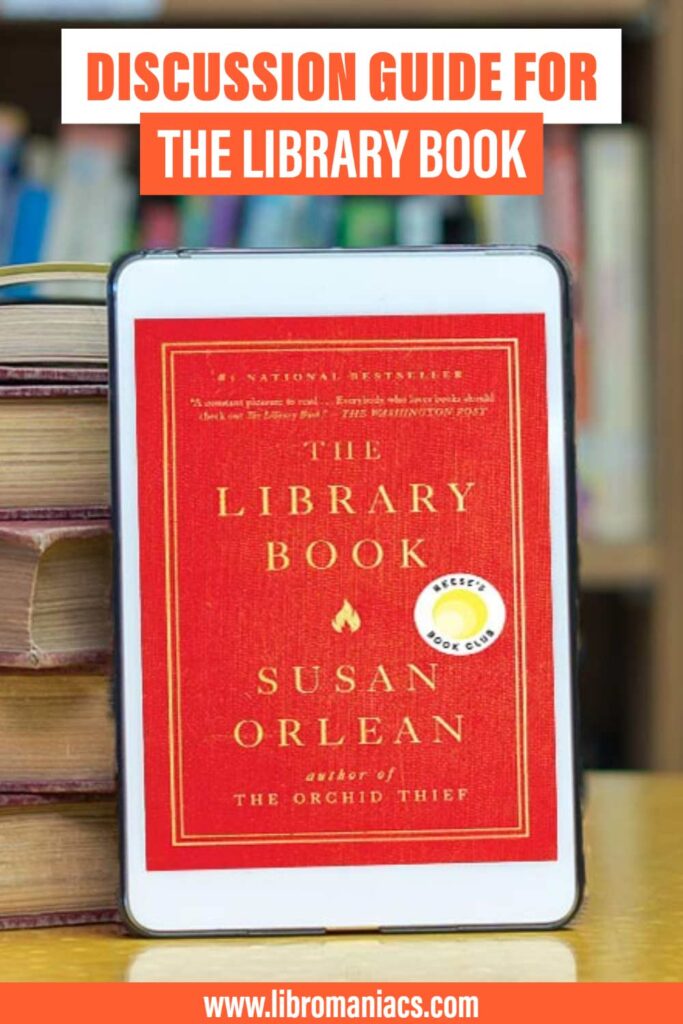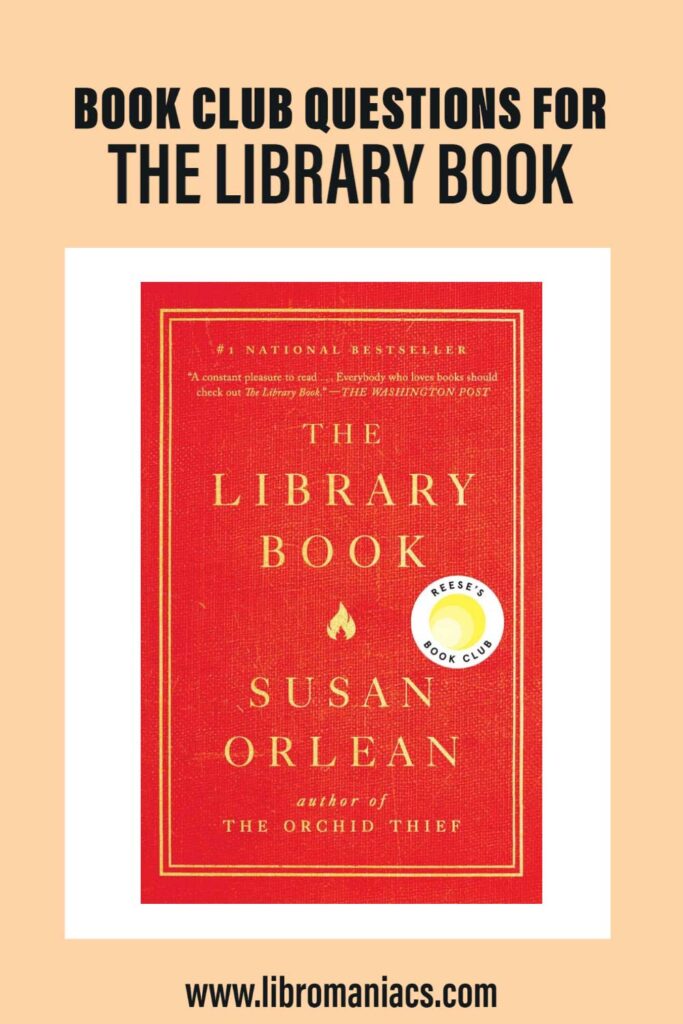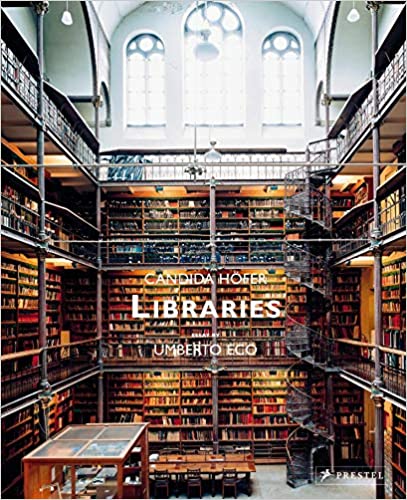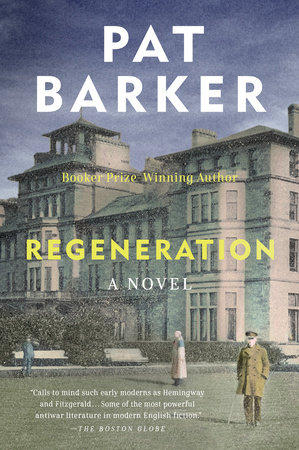Reading books about books and libraries is a very meta thing for any book club to engage in. Because of course you like books and libraries or you probably wouldn’t be in a book club in the first place. And Susan Orlean’s The Library Book sits at white hot center of that interest for any passionate book clubber.
In it, she covers the story of the creation and growth of the Central Library in LA. The story centers around the devastating 1986 that gutted a huge section of the library. But she adds a lot of interest with the history of the library, stories of its librarians and a profile of the evasive man who was accused of setting the fire.
Orlean’s well-researched book provides a wide range of topics to discuss and our book club questions for The Library Book will help you get started. Take a look at the synopsis- does it reflect your experience of the book? And then move on to our book club questions for The Library Book along with some selected reviews.
And scroll to the bottom for some ideas on what to read next.
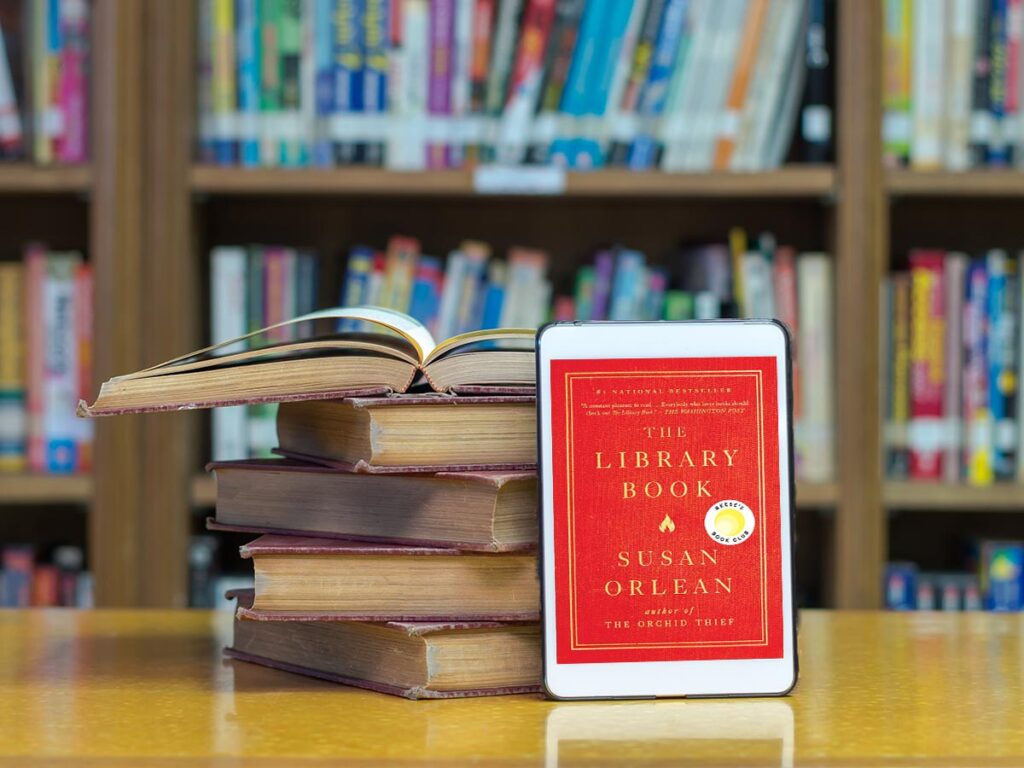
(This article contains affiliate links. This means that if you choose to purchase, I’ll make a small commission.)
The Library Book Synopsis
The Library Book, Susan Orlean
On the morning of April 28, 1986, a fire alarm sounded in the Los Angeles Public Library. The fire was disastrous: it reached two thousand degrees and burned for more than seven hours. By the time it was extinguished, it had consumed four hundred thousand books and damaged seven hundred thousand more. Investigators descended on the scene, but more than thirty years later, the mystery remains: Did someone purposefully set fire to the library—and if so, who?
Weaving her lifelong love of books and reading into an investigation of the fire, award-winning New Yorker reporter and New York Times bestselling author Susan Orlean delivers a “delightful…reflection on the past, present, and future of libraries in America” (New York magazine) that manages to tell the broader story of libraries and librarians in a way that has never been done before.
In the “exquisitely written, consistently entertaining” (The New York Times) The Library Book, Orlean chronicles the LAPL fire and its aftermath to showcase the larger, crucial role that libraries play in our lives; delves into the evolution of libraries; brings each department of the library to vivid life; studies arson and attempts to burn a copy of a book herself; and reexamines the case of Harry Peak, the blond-haired actor long suspected of setting fire to the LAPL more than thirty years ago.

10 Book Club Questions for The Library Book
- The book covers roughly three topics: the fire and its aftermath, suspicion surrounding Harry Peak and the “business” of the library. Which of these three aspects was the most interesting to you…and why?
- Orlean paints a vivid picture of the library’s patrons… “And then in an instant, people poured— the hoverers, who bolted from their posts in the garden, and the wall-sitters, and the morning fumblers, and the school groups, and the businesspeople, and the parents with strollers heading to story time, and the students and the homeless, who rushed straight to the bathrooms and then made a beeline for the computer center, and the scholars, and the time wasters, and the readers, and the curious and the bored…”
How did you find the writing style of the book? Did it work for you? - “Libraries were a solace in the Depression. They were warm and dry and useful and free: they provided a place for people to be together in a desolate time”. That was true for the Depression and it is true today for the LA library system. The Central Library provides a lot of non-book related services to the many different types of people who use the library.
Were you aware that libraries provide such social services? What are some of the services that your library provides to the community. - In discussing the epic scale of the fire, Orlean states that the number of books destroyed was the equivalent of 15 typical branch libraries. As a book-lover, how did you respond to her description of the fire and its devastating effect? Did it pain you?
- “Drunk, Divorced & Covered in Cat Hair: The True-Life Misadventures of a 30-something Who Learned to Knit After He Split” (2007), by Perry, Laurie 392.3428 P463
That was a particularly priceless example of one of the chapter openers. What did you think if Orlean’s use of arcane book titles as a start for each chapter? Why do you think that she chose that method and what did (or didn’t) it add to the narrative? - “In Senegal, the polite way to say that someone has died is to say his or her library has burned”. In this quote, she was referring to how books keep stories and history alive. What do you think of this metaphor?
- Harry was such a character. What with his swoop of hair and his alleged lunches with Cher. He was likeable and yet so unreliable. Have you ever known anyone like him? What do you think he was capable of?
- At the end of the book Orlean says that she “see-sawed countless times in what I believed really happened, in particular whether Harry was involved…In the end, I had no idea what was true or even what I decided to believe. I accepted the ambiguity”
What about you? Do you think it was arson or an accident? And if arson, do you think Harry did it? Can you accept the ambiguity? - Both LA and the Central Library had ups and down throughout the many decades that the book covers. Do you think that a library’s fortunes must rest upon a city’s fortunes?
- In her closing, she talks about being “buoyed by being here”, referring to a library visit that she made toward the end of finishing the book.
Do libraries give you buoyancy? If so, why?
Selected Reviews for The Library Book
“It’s kind of shaped as a true crime book, but evolves into a love letter to books & libraries. At times it was a whiplash experience for me in terms of enjoyment as I didn’t always find much interest in some of the things that were being explored, but then something would pull me in and I’d be right back in the zone.”
“Yeah, I finished it even though I was bored senseless. The author did a lot of research so I gave her 2 stars for sticking with it. I could picture her with a Rolodex of notecards with every last fact that she had uncovered about this massive fire and anything else vaguely connected. Then she didn’t stop until she had put EVERY last fact into this book.”
“This is so much more than just a true crime piece, however, and for that I was quite pleased. In fact, I found ‘chasing’ after the suspect to be the least compelling portion of the book. Instead, I gobbled up all the fascinating history of Central Library, libraries in general, and librarians across the years.”
“Orlean did a terrific job with her exhaustive research and it is obvious she put in many hours with those involved with the library and with those associated with Harry Peak.”
3 Books Like The Library Book
If you love librarians as much as Susan Orlean does, then we have a whole list of books about librarians to feed that need. And if you like the setting, try out list of books about libraries.
We’ve also got book club guides for The Personal Librarian and The Library of Lost and Found.
Beyond that, here are three more ideas for books like The Library Book.
Gulp: Adventures on the Alimentary Canal, Mary Roach
If you liked the well-researched passion project vibe of The Library Book, then you may also like Mary Roach’s science writing.
In Gulp, she tackles practical questions about the digestive tract with a deft touch and lot of wit. Have you wondered why crunchy food is so appealing? Why is it so hard to find words for flavors and smells? Why doesn’t the stomach digest itself? How much can you eat before your stomach bursts? Can constipation kill you? Did it kill Elvis? These questions and many more that you didn’t know you had, are answered in Gulp.
Libraries (Candida Höfer), Umberto Eco
Are you a sucker for a pretty library? If so, you may want to invest in this lovely coffee table volume. It features photography by Candida Höfer. She’s a photographer who specializes in beautiful building interiors and she’s shot many libraries. The book features an essay by Umberto Eco about his own personal attachment to libraries.
Regeneration, Pat Barker
Susan Orlean herself recommends reading the Regeneration series, which is focused on the psychological effects of World War I. The first in the series features a decorated English officer who declares that he will no longer fight and so he’s sent to a military hospital to be “cured”.
Orlean recommends it saying that “I don’t know how she does it, but Barker makes you feel as if she had been in the front lines of the war. The writing is dense and deep and gorgeous. I think about these books all the time. Be warned that they do take a lot of concentration, but the rewards are enormous.”
Have a listen on Audible. Try audio books for free for 30 days.
Share this discussion guide for The Library Book with your friends:
